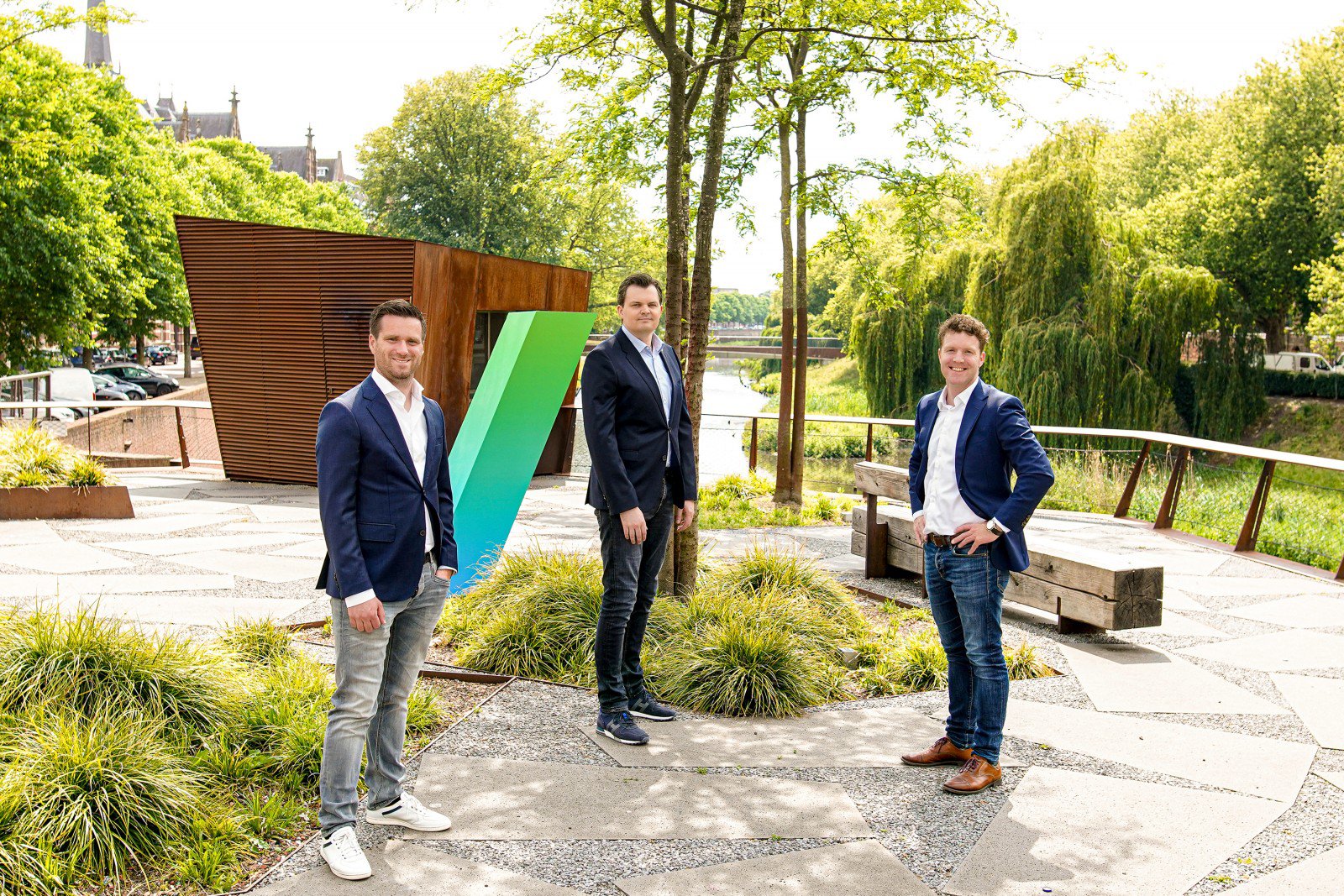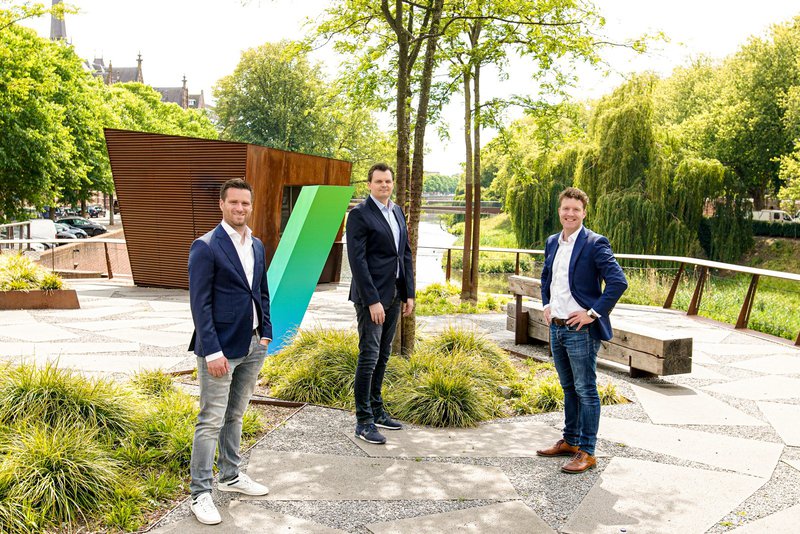Address
Johannes Vermeerstraat 23
1071 DK Amsterdam
Phone +31 20 794 7777
Email info@endeit.com

Late May we announced our series B investment of €9 million together with existing shareholders in Floryn. We thought it might be nice to share our reasons for investing.
Floryn is a Dutch fintech company, offering loans of up to €2 million to small and medium-sized enterprises with excellent customer experience management and service. Founded in 2016 by Sven van der Biezen (CEO), Marijn van Aerle (CTO) and Gion van den Bogaert (CFRO), the company has raised € 6 million in equity in 2017 from our friends at Peak Capital and Kalo Bagijn, co-founder of BinckBank and Brand New Day. In 2019, €60 million in financing was provided by NIBC and private investors. In addition to a PSD2 license from the Dutch Central Bank. Floryn has also obtained access to the Dutch loan guarantee scheme (BMKB-C), set up to help SME entrepreneurs affected by the coronavirus crisis. The company is located at the Jheronimus Academy of Data Science (JADS) in ‘s-Hertogenbosch, the Netherlands and has a team of 50 people.

After 15 years of scale-up investing we have learned that several qualitative and quantitative heuristics that VCs often use to evaluate investment prospects. They generally fall into two categories: people and product. Let us briefly look at these two categories in relation to our investment.
This is by far the most important qualitative criterion. Ideas are not proprietary: why would we want to back this particular team versus another team that might show up executing on this idea? A decision to invest means that Endeit cannot invest in a different team that may be better equipped to pursue the opportunity. That is why we generally like to get to know the team and date extensively before getting married.
We met Sven, Marijn and Gion already some years ago at the LOEY Awards, our annual celebration of online entrepreneurship. We have gotten to know them as intelligent, responsive serial entrepreneurs with a good balance of backgrounds and capabilities. In our many discussions within the team the fundamental question we tried to answer is this: Why back these founders against this problem set versus waiting to see who else may come along with a better organic understanding of the problem? Can we conceive of a team better equipped to address the market needs that might walk through our doors tomorrow? The answer was no, and we concluded they were the team to beat.
My colleague Marnix and I initially got to know Floryn as a “company-first” scale-up. One in which the founders decided they wanted to start a (new) company and brainstormed products that might be interesting around which to build one. In most cases, the product-first company really speaks to the organic nature of company formation. A real-world problem experienced by the founder becomes the inspiration to build a product (and ultimately a company); this organic pull is often very attractive for Endeit. But ultimately, successful businesses can ultimately be created from either mold.
We mostly focused on the founder’s temperament and leadership abilities. Are these founders able to create a compelling story around the company mission in order to attract great engineers, executives, and sales and marketing people? In the same vein, the founder has to be able to attract customers to buy the product, partners to help distribute the product, and, eventually, other VCs to fund the business beyond this round of financing. Will the founder be able to explain their vision in a way that causes others to want to join the mission? We believe so. Ultimately, what all these inquiries point to is the fundamental principle that most ideas are not proprietary, nor likely to determine success or failure in startup companies. Execution ultimately matters, and execution derives from a team’s members being able to work in concert with one another toward a clearly articulated vision.
Financial services are the central nervous system of every economy. Global fintech funding has grown at a 45% CAGR since 2011 as businesses and financial institutions innovate to serve growing financial expectations. Innovation in financial services has only scratched the surface for SME’s. Opportunities to reinvent and redefine old models, products and services exist across every vertical of finance.
Financial institutions have dominated the lending landscape for quite some time, providing financing to relatively low-risk borrowers mostly, leaving a large portion of the business community underbanked. The 2000s saw the emergence of alternative lending and financial players, particularly after the global financial crisis when the SMEs lost their trust in traditional lenders and as the latter faced tougher regulatory scrutiny, limiting business lending.
We believe part of the promise of alternative lenders resides in their ability to design their (IT) infrastructure from the ground up. This allows them to design more responsive products with enhanced analysis on enriched data. As a result, they are better able to assess the risk profiles of prospective borrowers in a fraction of the time compared to incumbents. New models aim to provide an edge versus traditional institutions through technology e.g. with AI, machine learning and predictive modelling, as well as improved methods of data digestion in risk scoring algorithms. The aim is always to increase credit acceptance without increasing credit risk.
COVID-19 is putting a strain on small business liquidity, testing the resilience of alternative lenders’ business models. Compared to banks they already face the challenge of keeping customer acquisition costs under control, as well as securing low-cost funding that banks can source from their depositors.
Today, many platforms source their capital using debt or equity pools from both retail and institutional investors. We believe that crowdfunding and peer-to-peer lenders have a distinct disadvantage compared to direct lenders. Direct lenders secure funding from institutional and accredited investors in advance to extend as credit at their own discretion.
Having a predictable and stable cost of capital allows direct lenders to make near-immediate decisions when borrowers apply and fund loans as soon as paperwork is complete. In exchange for the speed of the approval and funding process this is usually more expensive than going direct to small investors via crowdfunding and peer to peer markets. However, we believe that direct lenders scale better and are able to keep the credit flowing, even in a downturn as the one we are facing today.
To summarize, we believe that Floryn will beat the competition on four differentiation levers in a big market: (1) better credit decisions (2) direct access to capital (3) reasonable customer acquisition costs and (4) an excellent customer experience.
The Endeit team has working hard to understand the key to leveraging AI in today’s business environment. Human tasks which are primarily based on pattern recognition or perception are ripe for AI solutions. Most jobs and workflows are a hodgepodge of repetitive tasks, and deeper cognitive decision making based on a well-tuned causal understanding of the world and business environment. Progress on productivity enhancement requires breaking down our work along these lines and developing the AI tools for the right tasks. We call this approach Intelligent Empowerment.
Human judgement is still far and away the best approach to many business tasks. If we can focus on what AI does well, we get the maximum benefit while making workers optimally valuable and customers happier. Ultimately, this is precisely where we feel the founder team excels. Floryn has made major investments in machine learning, among other things, and has proven to be able to make faster and better risk assessments. Floryn does not look at dated financial statements, but at recent and real-time banking transactions and other data points. Floryn is driven by technology, data and processes, making them much more efficient and accurate than any competitor we have seen.
Since its founding, Endeit Capital has been investing in entrepreneurs that pioneer change in both the user experience and the supporting infrastructure of technology. We are excited to work with the Floryn team, alongside our friends at Peak Capital, and competent angels such as Kalo Bagijn.
Endeit refers to the following statement in connection with the sustainable finance disclosure regulation (SFDR), available here.
Get in touch with us by submitting your plan or by contacting one of our team members directly.
If you want to receive our newsletter, please put ‘newsletter‘ in the additional message box. ⮕